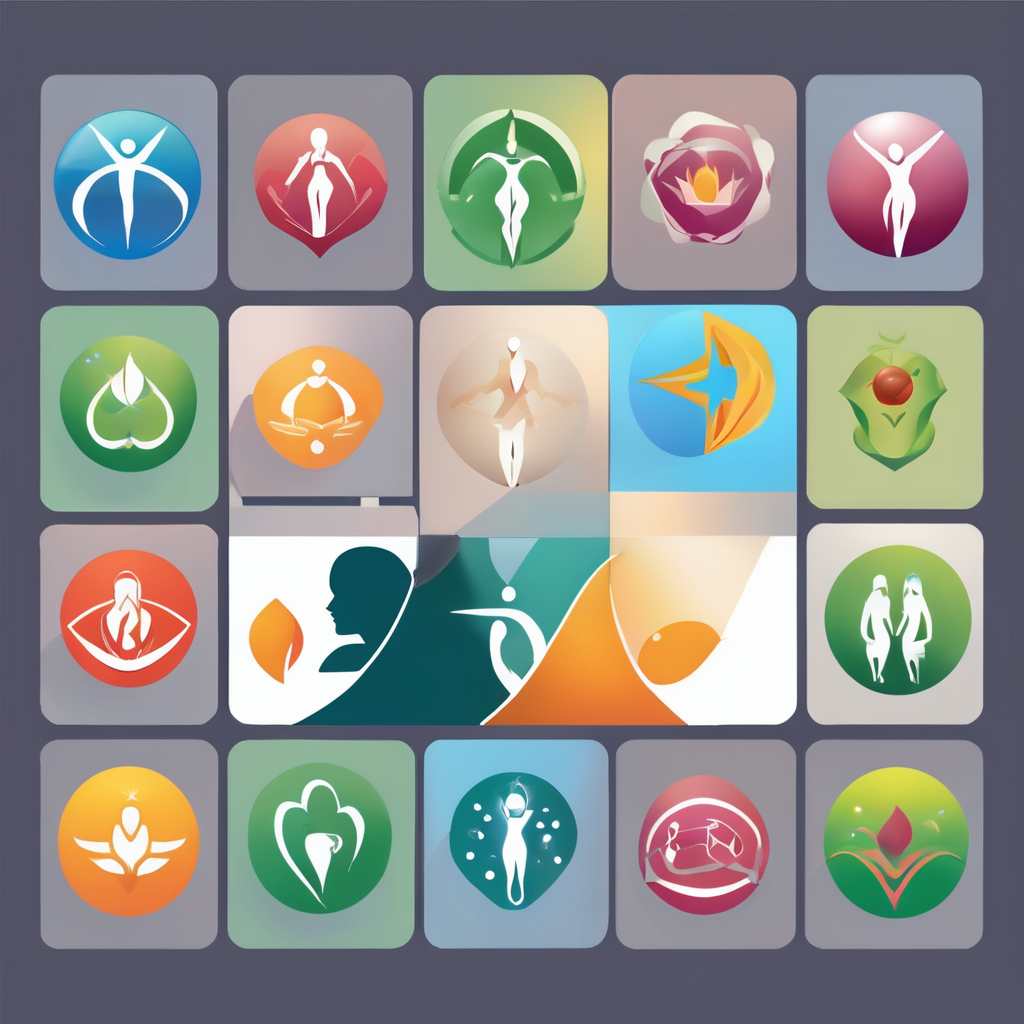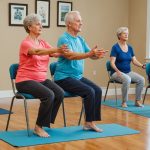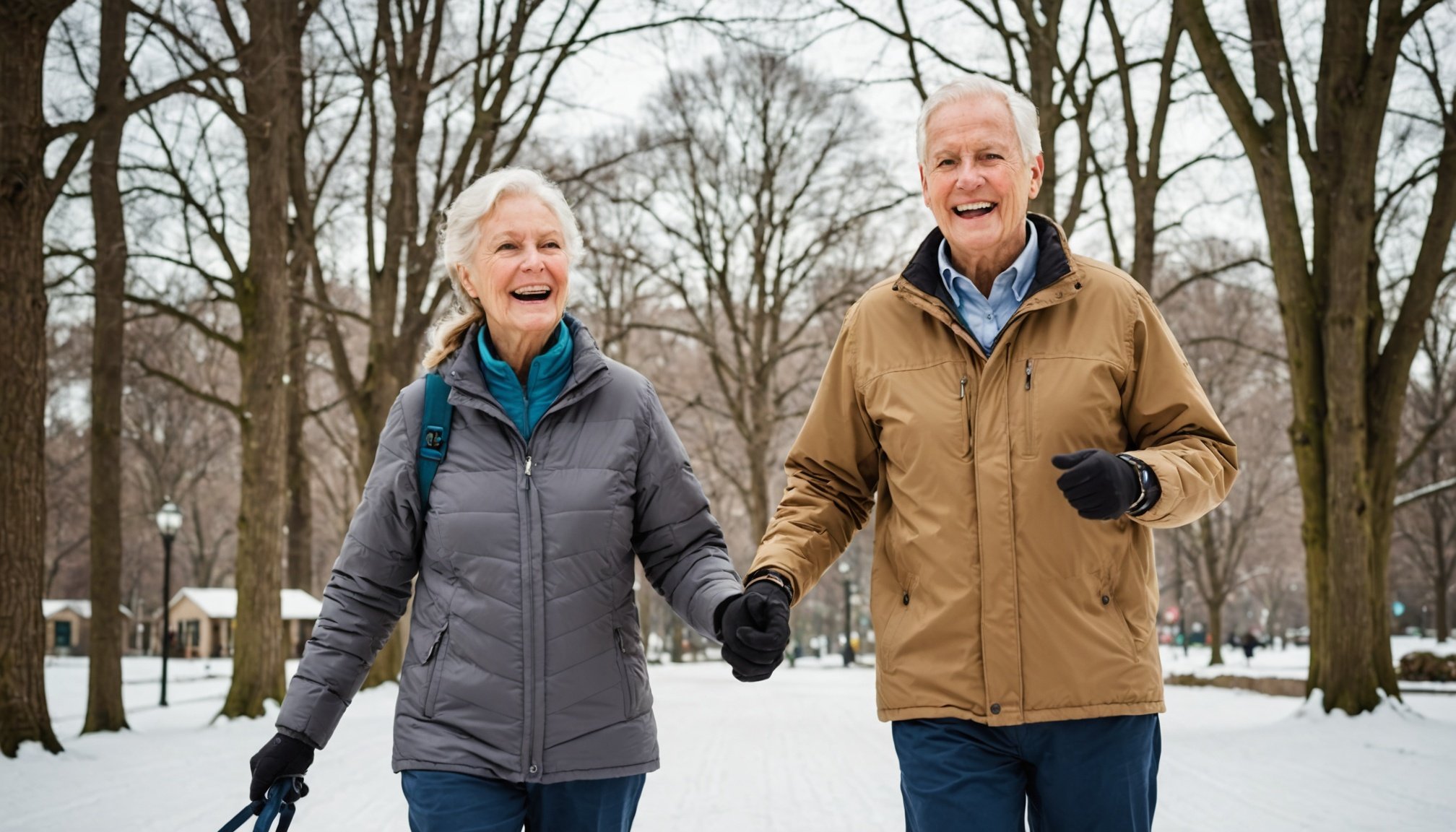Winter Wellness: Energizing Tips for Seniors to Maintain an Active Lifestyle
As the winter season sets in, it can be a challenging time for seniors, with colder temperatures, shorter days, and the risk of seasonal depression. However, with the right strategies and support, seniors can stay healthy, engaged, and active throughout the winter months. Here are some comprehensive tips to help seniors maintain their wellness and enjoy the winter season.
Staying Physically Active
Physical activity is crucial for seniors during the winter, as it helps maintain mobility, reduces the risk of chronic conditions, and supports mental health. Here are some ways seniors can stay active:
In the same genre : Enhancing balance: discover the key benefits of chair yoga for seniors facing stability challenges
Indoor Activities
When the weather outside is too cold or icy, indoor activities can be an excellent alternative. Simple exercises like stretching or chair yoga can help maintain flexibility and strength, which are critical for preventing injuries. For those who prefer a more active routine, walking indoors—whether in a mall, at a local community center, or along safe, uncluttered home corridors—can keep circulation and energy levels up[1].
Examples of Indoor Activities:
Also to read : Natural pain relief: top strategies for seniors to manage arthritis without medications
- Yoga and Pilates: These low-impact exercises can be done at home with the help of YouTube videos or DVDs. They improve flexibility, balance, and strength.
- Bodyweight Exercises: Simple exercises like push-ups, squats, and lunges can be modified to suit the senior’s fitness level.
- Walking: Indoor walking is a great way to stay active. Seniors can walk in a mall, community center, or even around their home.
- Dance Classes: Many community centers offer dance classes specifically designed for seniors, which can be a fun and engaging way to stay active.
Outdoor Activities When Possible
When the weather permits, venturing outdoors can provide a breath of fresh air and exposure to sunlight, which helps boost Vitamin D levels and combat Seasonal Affective Disorder (SAD).
Safety Tips for Outdoor Activities:
- Dress Warmly: Wear layers of warm clothing, including a hat, gloves, and scarf.
- Use Sturdy Footwear: Wear shoes with good traction to prevent slips and falls.
- Clear Paths: Ensure that outdoor paths are clear of snow and ice to prevent falls[1].
Nourishing the Body for Strength and Vitality
Maintaining a nutritious diet is especially important during the winter months when reduced sunlight and colder temperatures can weaken the immune system and energy levels.
Key Nutrients
- Vitamin D: Foods rich in Vitamin D, such as fortified dairy products, salmon, and eggs, are crucial during months with limited sun exposure[1].
- Hydration: Encourage the regular consumption of water, herbal teas, or hydrating broths to support bodily functions and overall vitality. Seniors may feel less thirsty during winter, but dehydration remains a risk[1][2].
Healthy Winter Meals:
- Hearty Soups and Stews: These meals provide a comforting way to incorporate vegetables, lean proteins, and whole grains.
- Warm and Nutritious Breakfasts: Oatmeal with fruits and nuts, or scrambled eggs with whole-grain toast, can help start the day on a healthy note.
Reducing the Risks of Winter Falls
Winter increases the risk of falls due to icy sidewalks, snow-covered paths, and slippery indoor floors from tracked-in moisture. Here are some tips to reduce this risk:
Preparation and Safety Measures
- Clear Outdoor Areas: Regularly clear snow and ice from outdoor areas and use salt or sand to improve traction.
- Secure Indoor Rugs: Use non-slip backing on rugs to prevent them from slipping.
- Remove Clutter: Keep indoor walking paths clear of clutter to prevent tripping hazards[1].
Assistive Devices:
- Canes and Walkers: Use canes or walkers, especially those fitted with ice-grip tips for outdoor use, to improve stability.
- Vision and Hearing Checks: Regular health screenings are vital to ensure seniors can handle environmental risks safely[1].
Combating Loneliness and Fostering Connection
Loneliness and isolation are common challenges for seniors during the winter. Here are some ways to combat these issues:
Staying Connected
- Regular Video Calls: Schedule regular video calls or phone conversations with family and friends to ensure seniors feel involved and valued.
- Virtual Gatherings: Set up weekly virtual gatherings or assist seniors with letter writing or crafting care packages to encourage meaningful interaction[1].
Community Programs:
- Senior Centers: Many senior centers and faith-based organizations offer winter programs such as book clubs, wellness classes, or hobby workshops. These can be attended in person or virtually[1].
- Virtual Social Clubs: Join virtual social clubs or connect with loved ones through online platforms to stay engaged and connected[4].
Managing Stress and Mental Health
Winter can bring about seasonal affective disorder (SAD) and increased stress. Here are some tips to manage stress levels:
Mindfulness and Meditation
- Practice Mindfulness: Engage in mindfulness exercises, meditation, or yoga to help manage stress levels.
- Light Therapy: Use light therapy lamps, such as those from Vive Health or Carex Sunlite, which can help elevate mood and energy levels while regulating sleep patterns[2].
Tools to Help Manage Stress:
- Aromatherapy Diffusers: Promote relaxation and reduce stress with aromatherapy diffusers.
- Heated Blankets and Pads: Stay warm and cozy with heated blankets and pads, which can also aid in muscle relaxation and promote healing[2].
Additional Tips for Winter Wellness
Here are some additional tips to help seniors stay healthy and active during the winter:
Stay Hydrated
- Drink at least 8-10 glasses of water a day. Warm beverages like tea or hot chocolate can also help keep you cozy and hydrated[2].
Boost Your Immune System
- Load up on vitamin C with foods like citrus fruits, leafy greens, and bell peppers. Consider supplements like vitamin C, zinc, or probiotics after consulting with your doctor[2].
Get Enough Sleep
- Create a relaxing bedtime routine, avoid caffeine and electronics before bed, and make your bedroom a sleep-friendly environment. Aim for 7 to 9 hours of sleep each night[2].
Practical Insights and Actionable Advice
Here are some practical insights and actionable advice to help seniors and their caregivers implement these tips:
Create a Winter Wellness Plan
- Develop a plan that includes regular physical activity, a balanced diet, and strategies to stay connected and manage stress.
Seek Support
- Reach out to care professionals or home care services for assistance with daily tasks and to provide companionship.
Stay Informed
- Keep up-to-date with the latest health advice and winter safety tips from reliable sources such as the National Institute on Aging and the Centers for Disease Control and Prevention.
Table: Comparing Winter Wellness Tips
| Tip | Description | Benefits |
|---|---|---|
| Stay Physically Active | Engage in indoor activities like yoga, walking, or bodyweight exercises. | Improves mobility, reduces chronic conditions, supports mental health. |
| Nourish the Body | Eat a balanced diet rich in Vitamin D, stay hydrated. | Prevents illnesses, maintains energy, supports overall health. |
| Reduce Fall Risks | Clear outdoor areas, secure indoor rugs, use assistive devices. | Prevents injuries, ensures safety. |
| Combat Loneliness | Stay connected through video calls, virtual gatherings, community programs. | Reduces isolation, fosters meaningful interaction. |
| Manage Stress | Practice mindfulness, use light therapy, stay warm and cozy. | Regulates mood and energy levels, promotes relaxation. |
| Stay Hydrated | Drink at least 8-10 glasses of water a day, consume warm beverages. | Prevents dehydration, supports bodily functions. |
| Boost Immune System | Load up on vitamin C, consider supplements after consulting a doctor. | Enhances immune system, prevents winter illnesses. |
| Get Enough Sleep | Create a relaxing bedtime routine, avoid caffeine and electronics before bed. | Supports immune system, promotes overall health. |
Quotes from Experts
- “Winter doesn’t have to mean inactivity. Seniors benefit greatly from maintaining a balance of physical, mental, and creative engagement.” – Your Home Team Care[1]
- “A strong immune system is your best defense against winter illnesses. Load up on vitamin C with foods like citrus fruits, leafy greens, and bell peppers.” – CarePro Home Medical[2]
- “Social isolation can increase the risk of premature death by 26%. Maintaining connections with family and friends is a powerful antidote to isolation.” – National Institute on Aging[1]
Winter wellness for seniors is about more than just staying warm; it’s about maintaining an active lifestyle, staying healthy, and fostering connections. By embracing physical activities, nourishing the body, reducing fall risks, combating loneliness, managing stress, and following additional wellness tips, seniors can enjoy the winter season with vitality and joy. Whether through indoor hobbies, outdoor excursions when safe, or staying connected with loved ones, there are numerous ways to make the winter months a season of comfort and engagement.
By implementing these tips and seeking support when needed, seniors and their caregivers can ensure a warm, healthy, and fulfilling winter. Remember, winter is a season of contrasts, but with the right approach, it can also be a time of joy and connection.











